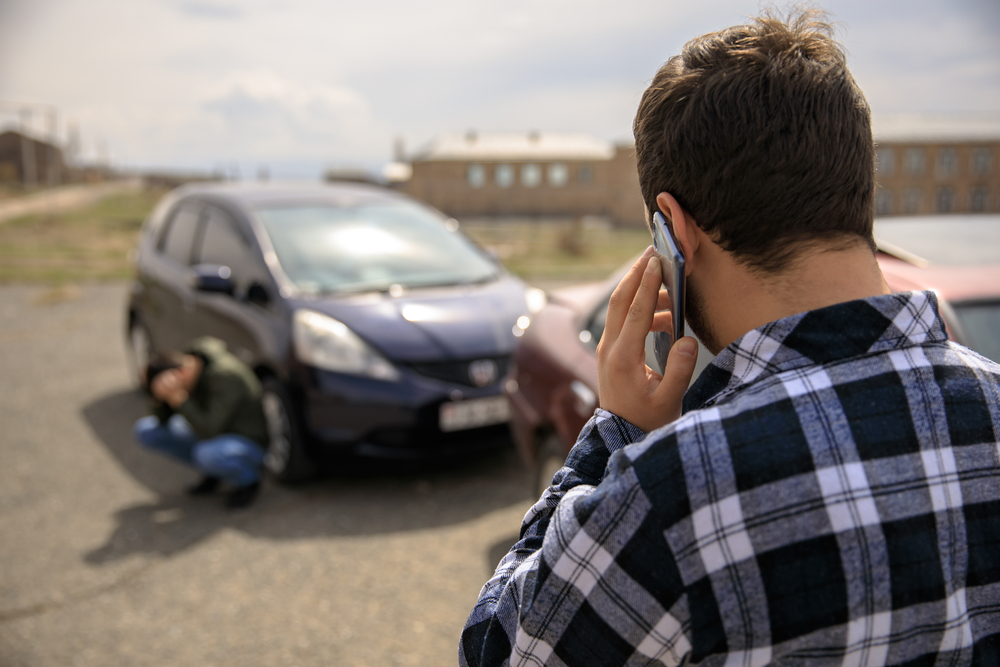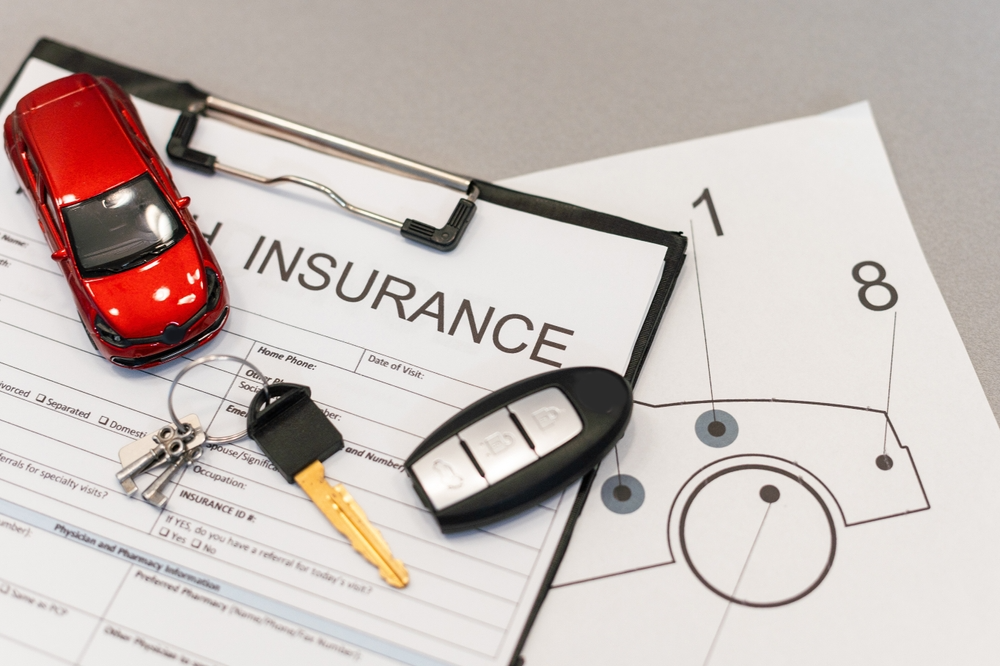Legal Rights of Passengers in Car Accidents
Passengers involved in car accidents have legal rights that are often stronger and more straightforward than those of drivers. As a passenger, you are rarely considered at fault for the accident, which means you generally have the right to seek compensation for your injuries, regardless of which driver caused the crash.
One of your primary rights is the ability to file a personal injury claim against the at-fault party. This can be the driver of another vehicle, the driver of the car you were riding in, or even both if they share responsibility. You may be entitled to compensation for medical expenses, lost income, pain and suffering, and other damages resulting from the accident.
If the driver of the car you were in is at fault, you can usually make a claim against their auto insurance policy. In cases where multiple passengers are injured, the insurance coverage may be split among all claimants, which could affect how much compensation you receive.
Additionally, passengers may be able to file claims under multiple insurance policies, including their own personal auto or health insurance, or through uninsured/underinsured motorist coverage if the at-fault driver lacks adequate coverage.
Can You Sue Friends or Family Members Driving the Car if You Were Injured as a Passenger?

Yes, you can sue friends or family members if you suffered an injury as a passenger in their vehicle and they were at fault for the accident. While it may feel uncomfortable to take legal action against someone close to you, it’s important to understand that in most cases, you’re not suing them personally. You are filing a claim against their auto insurance policy to cover your medical bills, lost income, and other damages. Do not hesitate to file a claim because the driver was a family member or friend. You would only be leaving money on the table if you were uncomfortable about seeking a settlement because of who was driving the vehicle.
Auto insurance exists specifically to handle these situations, and drivers pay premiums to ensure coverage when accidents happen—even if the injured party is a friend or family member. Your claim can help cover expenses related to emergency care, ongoing treatment, and compensation for pain and suffering, without necessarily creating financial hardship for the driver personally.
However, some policies may have “household exclusion” clauses, which limit or exclude coverage for injuries sustained by family members living in the same household. Even if this household exclusion did not exist in a policy, many states have a rule which states that a spouse cannot file a claim against the other because they are considered to be the same legal entity. It is important to review the driver’s policy carefully or consult a personal injury attorney to understand what is and isn’t covered.
Can a Passenger Be Responsible for a Car Accident?
While passengers are typically not held liable for car accidents, there are rare circumstances where a passenger can be partially or fully responsible for causing a crash. This usually occurs when the passenger interferes with the driver’s ability to operate the vehicle safely or contributes to the conditions that lead to the accident.
For example, if a passenger grabs the steering wheel, distracts the driver, or encourages reckless behavior, they may be found partially liable. Courts may consider whether the passenger’s actions directly impacted the driver’s control of the vehicle or judgment. In such cases, the passenger’s conduct can be viewed as negligent or even intentional, depending on the facts. It is always within the realm of possibility that the insurance company can raise some type of allegations against the passenger based on their conduct, and you must be prepared to rebut and deal with these allegations because they could affect the amount of compensation that you could receive.
A passenger may also face liability if they knowingly allowed an impaired driver to operate the vehicle. While not automatically responsible, if it can be proven that the passenger encouraged the driver to break the law (such as driving under the influence), they can be held partially accountable under certain legal theories, such as negligent entrustment or complicity.
However, these cases are uncommon, and passengers are generally considered innocent parties entitled to compensation for injuries suffered in an accident. For a passenger to be found liable, there must be clear evidence of inappropriate or dangerous behavior that contributed directly to the cause of the crash. While you should hire a car accident lawyer at the outset of your case, if the insurance company begins to raise any allegations against you, it is a clear sign that you need to hire an attorney for your case.
Can a Passenger File a Claim Against Their Own Car Insurance Policy?

Usually, your claim would be filed against the insurance policy of the driver who was at fault for the accident, whether they were behind the wheel of the car that you were in or the other car. However, there are instances in which you can file a claim against your own car insurance policy when you suffered an injury as a passenger.
Depending on the state in which you reside, you may have some type of personal injury protection (PIP) or MedPay coverage as part of your own car insurance policy. You can have your own car insurance company pay for your medical bills and lost income (but not non-economic damages, such as pain and suffering and emotional distress) if you have PIP coverage. Then, if the at-fault driver’s insurance company paid you, they will be reimbursed from your settlement for the money that they have already spent. MedPay can cover a limited amount of your medical bills while you are waiting for your case to be resolved.
You can also file a claim against your own insurance company if the responsible driver did not have a car insurance policy, or they did not have enough coverage to pay for your damages. You can file a claim against your own insurance, even when you were a passenger in a vehicle and not the driver. However, you still need to be careful when you are dealing with your own insurance company. They have the same exact mentality as the other driver’s insurance company in that they do not want to pay you the full amount of compensation you are owed for your injuries. Your own insurance company can be looking for a way to avoid paying you or to give you less money than you deserve.
Can a Passenger Sue for an Accident if Nobody Was Clearly at Fault?
From a fundamental fairness perspective, an injured passenger should always have some sort of legal remedy against someone in a car accident case (unless the at-fault driver falls under the household or spousal exception). A passenger can still pursue compensation for injuries even if no one is clearly at fault for the accident. Car accidents are not always the result of obvious negligence—sometimes, they occur due to poor weather, mechanical failure, or a combination of factors that make fault difficult to determine. However, this does not mean injured passengers are without options.
In many states, auto insurance policies include “no-fault” coverage, especially in jurisdictions that follow no-fault insurance laws. Under these systems, an injured passenger can file a claim with the driver’s insurance—regardless of who caused the accident—for coverage of medical expenses and lost income, up to the policy limits.
If the state follows a fault-based system, a more detailed investigation may be needed to determine liability. Even if both drivers (in multi-car accidents) share partial blame, a passenger can recover damages. In such cases, insurance companies may divide responsibility proportionally between the drivers, and passengers can file claims against both. Of course, an injured passenger may always explore the possibility of using their own PIP protection if they have it as part of their policy.
How Much Compensation Can I Receive as an Injured Passenger?
If you have suffered an injury as a passenger, your compensation will be similar to a driver who has suffered an injury in a car accident. You can be compensated for the following elements of your damages:
- Lost income
- Medical expenses
- Pain and suffering
- Loss of enjoyment of life
- Emotional distress
- Scarring and disfigurement
If your loved one died as a passenger in an accident, your family can seek compensation for your own losses in a wrongful death lawsuit. Your car accident attorney can calculate the value of your case, so you know how much to seek in a claim or lawsuit.
Why You Need a Car Accident Lawyer When You Have Suffered an Injury as a Passenger

If you’ve suffered an injury as a passenger in a car accident, you may assume that your legal case will be straightforward since you weren’t driving. However, car accident claims involving passengers can quickly become complicated—especially when it comes to determining fault, dealing with multiple insurance companies, and ensuring you receive full compensation for your injuries. That’s why hiring a car accident lawyer is a smart move.
A skilled attorney can help you identify all potential sources of compensation. You may need to file more than one claim to receive the full value of the damages that you have suffered. This may include the driver of the car you were in, another driver involved in the crash, or even your own insurance coverage through uninsured/underinsured motorist policies. You may need to file a claim against both drivers when they both shared fault for the crash. When multiple parties are involved, each insurance company may try to minimize its responsibility, leaving you caught in the middle. A car accident attorney will fight to ensure that neither insurance company is able to avoid its obligation to pay you and to work to make you financially whole after your injuries.
Additionally, if there’s any dispute over liability or the insurance companies delay or deny your claim, your attorney can take legal action to secure the compensation you deserve. Insurance companies will do everything in their power to frustrate your claim in any way that they can, and a car accident attorney can hold them accountable.
Even if the at-fault driver is a friend or family member, your car accident lawyer can handle the process with sensitivity—ensuring that you pursue compensation through the insurance policy without personal conflict. You may already be worried about fracturing your relationship with a friend or family member, and a car accident attorney will understand your individual situation. Again, when you file an insurance claim, your fight is with the insurance company instead of their policyholder.
A Car Accident Attorney will Handle the Legal Hurdles
If you or a loved one has suffered an injury as a passenger in a car accident, you should always contact a lawyer. A trusted personal injury attorney provides the experience, strategy, and advocacy you need to navigate the legal system and focus on your recovery while ensuring your rights as an injured passenger are fully protected. They have helped others who have been in this situation. Don’t delay, call today.

